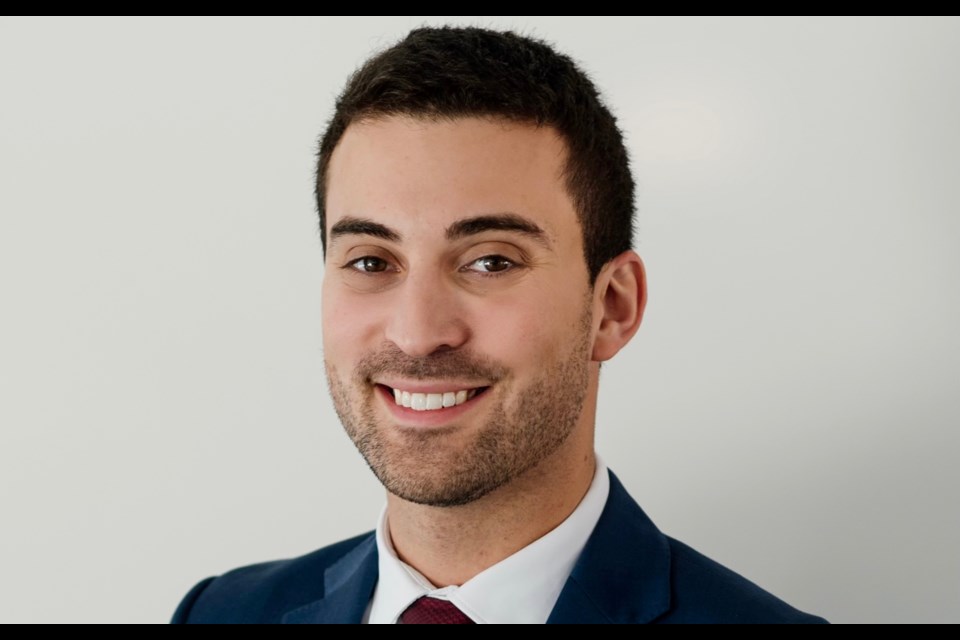KENORA – Eric Melillo has been re-elected for a third term in Kenora-Kiiwetinoong.
With 145 out of 157 polls reporting at 12:55 a.m. Tuesday, the Conservative had just under 50 per cent of the 23,264 votes counted, well ahead of Liberal Charles Fox’s 35 per cent and New Democrat Tania Cameron’s 13 per cent.
Jon Hobbs, on the ballot for the Green Party of Canada, garnered about one per cent of the vote. People’s Party of Canada candidate Bryce Desjarlais and Independent candidate Kelvin Boucher-Chicago each had less than one per cent.
Newswatch reached out for an interview but Melillo was not made available, just as he was not made available for interviews throughout the 36-day election campaign.
This is Melillo’s third election triumph, after being elected and re-elected in 2019 and 2021 in Kenora. The riding’s boundaries changed somewhat after the 2021 election and it was renamed Kenora-Kiiwetinoong.
Melillo’s party biography describes the Lakehead University alumnus as a “strong representative” for Kenora-Keewitinoong who has championed “critical infrastructure projects, meaningful supports for Indigenous communities and … better economic opportunities for all.”
Fox, a Bearskin Lake First Nation member and former Nishnawbe Aski Nation grand chief, said he “really enjoyed” being the Liberal candidate.
“I got to meet a lot of my old friends,” he said.
He said his campaign included visits to the Kasabonika Lake, Kitchenuhmaykoosib Inninuwug and Sandy Lake First Nations, communities he served when he was NAN grand chief.
The Conservatives ran an effective campaign, Fox said.
“You know, wherever I went in the municipalities there was a lot of support for Eric, and I can understand that.
“I appreciate that, likewise, in the First Nation communities there was support for Tania – and, of course, support for me.”
Fox said he hopes to see in the region “a discussion amongst all the parties to look at commonalities and where can we agree to work together and where can we agree to disagree.”
This was a fourth time as an NDP candidate for Cameron, a member of Niisaachewan Anishinabe Nation who is chief executive officer at Wiigwas Elders and Senior Care in Kenora. She previously ran for the orange party in the 2008 and 2011 federal elections.
“Obviously I’m disappointed with the results,” Cameron said, “but the people have chosen. We live in a democracy and the people have chosen, and I respect that.
“I believe I did the best I could and I logged in the mileage and put in the steps and met a lot of people and had great discussions on the doorstep, but I fell short. But I’m still proud of my campaign.”
“I guess I did get the message out there,” Boucher said of his own campaign. But he added that he has seen little progress on what matters most to him over the years, “especially in regards to the homeless people.”
The campaign period “was a little too short, to be honest,” Desjarlais said, before adding that he was happy to help spread the party’s conservative message.
The election was called on Sunday, March 23. At dissolution, the Liberals had 153 of 338 seats in the House of Commons – the most of any party, but not a majority. With five seats added in boundary redistribution, this election was for 343 seats nationwide.
Kenora–Kiiwetinoong covers a vast area stretching north to Hudson Bay and includes the cities of Kenora and Dryden, seven other municipalities and dozens of First Nations.
Melillo’s support at the polls has grown with each election. He first got elected with just 34 per cent in 2019, when he defeated Liberal Bob Nault, then raised his support to 43 per cent in 2022.
This is a developing story. Updates will be provided as more information becomes available.
